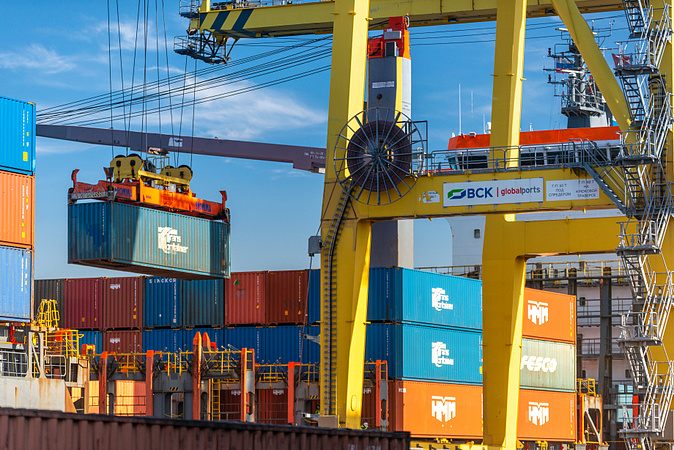
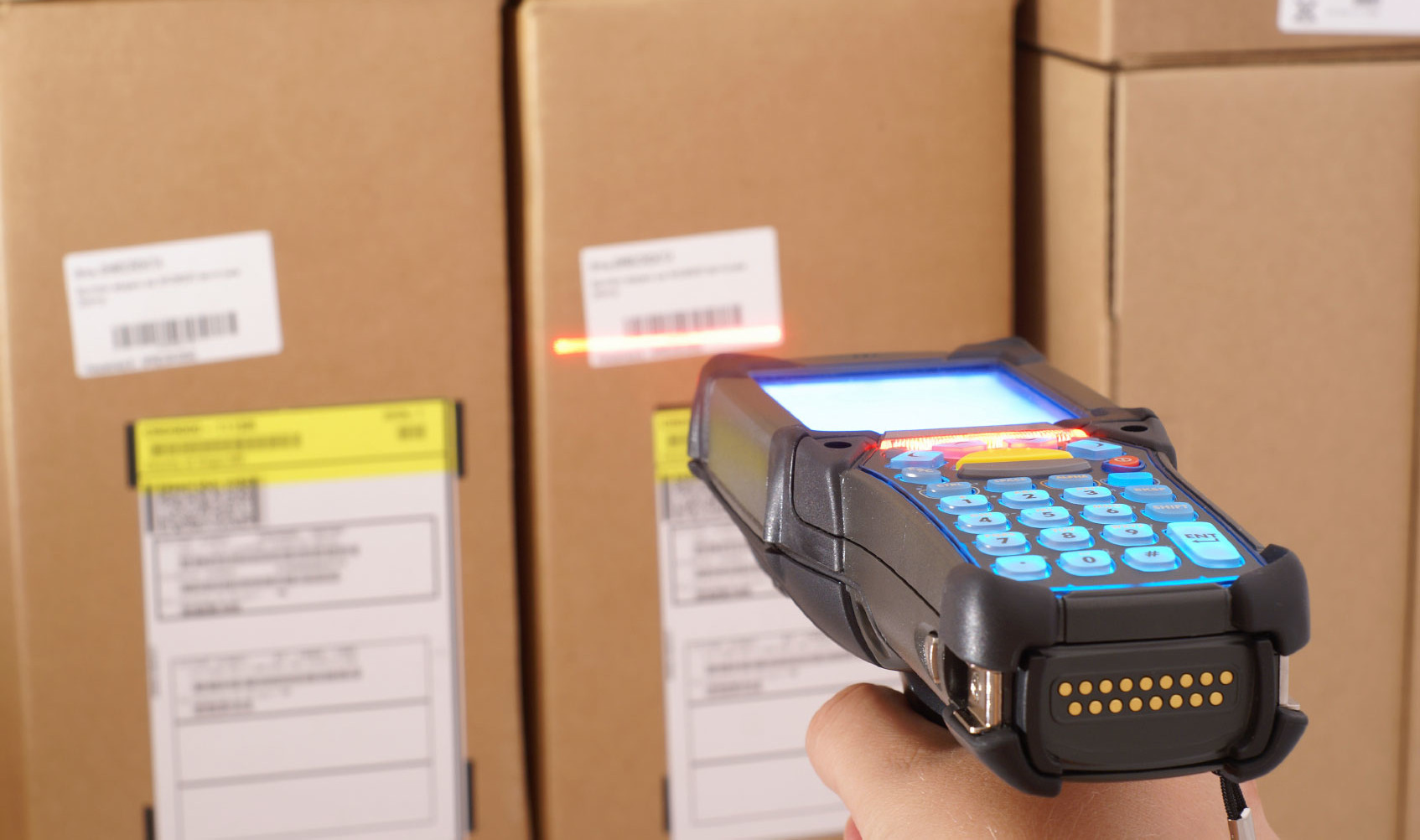



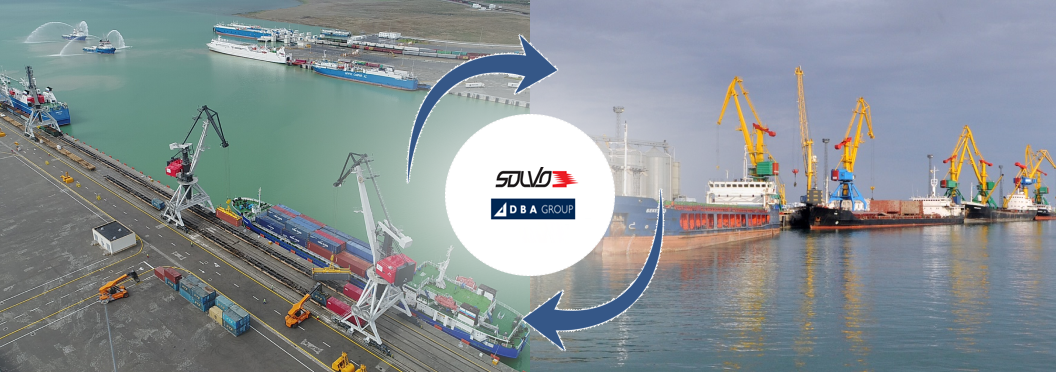
SOLVO and DBA Group experts told about the successful results of a joint project to create a single digital space between the ports of Aktau and Baku at the Transport Events webinar in June, 17th.
Representatives of the ports of the Caspian Sea, the Trans-Caspian International Transport Route (TITR) of the Republic of Kazakhstan, the Azerbaijan Railways and the logistics company KTZ Express also joined the online meeting. The webinar participants assessed the results of the joint project SOLVO and DBI Group and spoke about their vision of the prospects for further digitalization of the Caspian region.
The idea of a unified information system between the logistics companies of the Caspian region and the so-called new Silk Road was proposed in October 2020, and successfully implemented in 2021. The main advantage of the unified information system for logistics operators in the region is the principle of "one window", which allows quick and easy information exchange that saves time and resources and enables to receive the necessary information on time for the implementation of logistics operations on time.
Marco Politi, Vice President Sales, Commercial Director at DBA Group, noted at the webinar that “at this point in the world one of the biggest problems is the lack of digitalization of some processes and also exchange of paper documents”. The ports of Aktau and Baku faced such a difficulty. The ports needed to exchange information working with passenger and cargo vessels shuttling between them.
“Now the whole process of information exchange between ports has been converted into an electronic format, and data is transmitted in a structured form” Maxim Maximov, Commercial Director of SOLVO, said in his presentation.
Video with the presentation of Maxim Maximov
The SOLVO.TOS (Terminal Operation System) plays an important role in this process. The system has a modular structure. Each module is responsible for one local business process. And, of course, all these modules are connected into a single system.
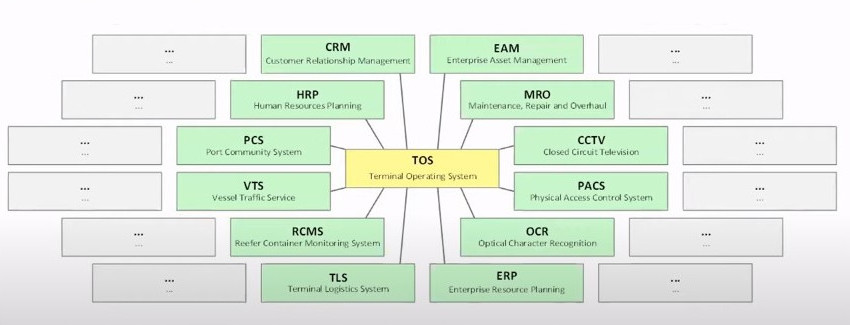
“Usually TOS works not alone, but in connection with IT systems that the terminal uses. For example, it is ERP, CRM, OCR or PCS (Port Community System). PCS is not only in this port, in the local port, but we could integrate our system with the external PCS of other ports. Our project with the ports of Aktau and Baku was implemented according to the same principle. We have a special module of the system – Solvo.API (Application Programming Interface). It has two modules: EDI (Electronic Data Interchange) for receiving and transformation data from external information systems and Notifier for preparing messages in the required format for external information systems when certain events occur. We receive a document with a message from the port system, transfer it to the EDI module in various formats, which are then converted into the format required for the Solvo.TOS database. As a result, the user receives all this information online” explained Maxim Maximov.

He added that the Solvo.EDI module also integrates with other systems through various protocols. For example, it could be Web Services, Java Message Service, DB exchange tables (ETL).
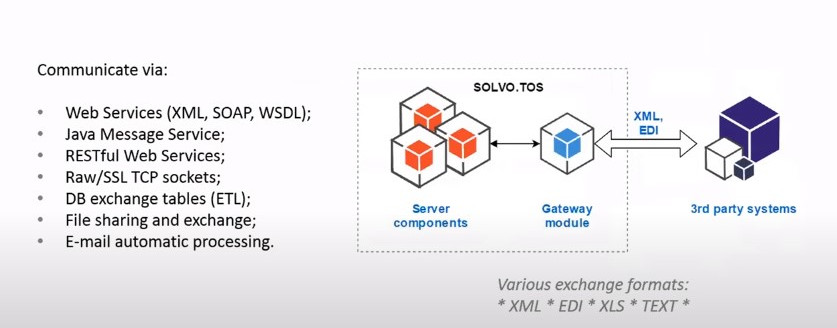
Solvo.TOS transmits data about vessels or its characteristics, passengers at ferries, all the information about containers, general and Ro-Ro cargo into the unite digital space. And now it is easier to communicate between ports without additional human resources to transfer the information to the system. It is easier to plan the activity and planner (the decision board).
As a result, the joint solution of SOLVO and DBI Group should help to increase the efficiency of planning of cargo handling operations, regulation of passenger traffic, improve the quality of service and speed up document flow processes.
Marco Politi noted that in the future it is possible to expand this platform by including other participants in the Caspian region. For example, from Iran. He also added that it is possible to think about expanded integration, taking into account the ports of the Black Sea. On this topic, representatives of logistics companies who participated in the webinar expressed different opinions. However, although opinions on the need for such cooperation were divided, everyone agreed that further digitalization of the Caspian region is needed and will help to solve a lot of important tasks.
In addition, the meeting participants discussed the global challenges they see in the development of logistics in the Caspian region, how digitalization can solve them in the future, and for what urgent tasks this effective tool is applicable today.





